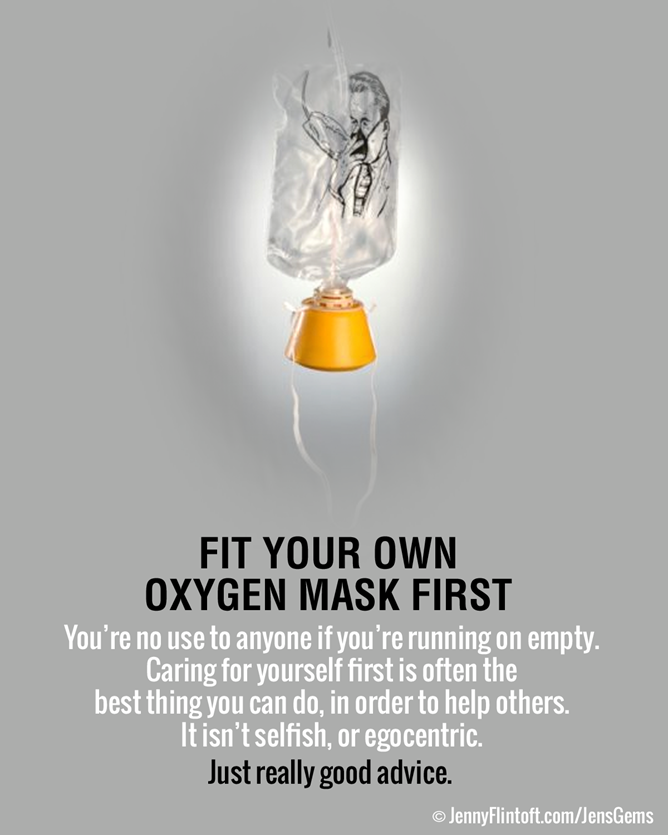What are you doing for my well-being?
This is the sentence which most school leaders will have heard as they try to square the circle of trying to implement what is needed to achieve good outcomes for the school, both with national tests and Ofsted, whilst trying to not let that burden land too heavily on those for whom they have line management responsibility.
The following are just some ideas to help square that circle and help to protect your well-being as a school leader.
Who is ensuring school leader’s well-being? The role of governors.
Governors have a duty of care over the Headteacher and the Headteacher is responsible for the duty of care to staff on a day to day basis.
- Does the well-being of staff feature on every GB agenda ?
- Do governors understand well-being and the pressures impacting that well-being?
- Does the school put aside resource to support well-being including that of school leaders?
- Is there someone who all school leaders can go to within the school to discuss their well-being without prejudice?
- Does the chair or designated well-being governor meet with the head regularly to discuss the pressure and impact on well-being for all school leaders including the head?
- Is there governor awareness of those school leaders who tend to work in relative isolation, and what support they might need? (head/ SBL)
- Do governors turn a blind eye to school leader overwork and potential burnout until it is too late?
- Do governors understand the pressures leading to school leaders regularly working double their paid hours each week and what action is taken to remediate this?
- How do governors garner this information and make sensitive decisions that support well-being of senior leaders preventing burnout and maximizing potential?
How do I set the tone as a school leader?
Well-being needs to be led and culturally developed and expressed through the ethos of the school.
“It’s the way we do things here…”
- Create a vision for what well-being should look like in your school.
- What practices are you going to put in place and consistently reinforce?
- Relationships – Is our relationships culture in school supportive of a strong well-being culture?
- Policies – Do we only have policies that we need and do they all support well-being…. A golden thread.
- Workload – Do we regularly challenge inappropriate workload levels?
- Do I give other staff permission for well-being through my own actions? Leave early twice a week.
- Stress points – find wellbeing friendly ways to evaluate the quality of the curriculum.
- Create at least as much time for one to one wellbeing catch ups with staff as you do for appraisal.
- Utilise the freedoms you have with the holiday pattern to create time for school leaders to get a break, especially at report writing time.
- Model the well-being vision you have set for yourself and the school. Live the example.

What about me as a school leader?
The job is mentally and physically exhausting.
Therefore you need to think about yourself.
As a school leader you aren’t indestructible and there is growing evidence that prolonged exposure to stress, the likes of which school leaders experience, damages your heart if experienced on a regular and consistent basis.
Well-being is like a reservoir that you need to fill with positive experiences and events that nourish it.
However the past year has demonstrated very clearly, that our wellbeing can be drained rapidly, but there are things that you can do professionally to help yourself.
- Free yourself of the little voice in your head that builds imposter syndrome. You are good enough because you have been appointed and given the role of the senior leader.
- Don’t compromise your own wellbeing for others. Put your own oxygen mask on first. Without it you can’t help others.
- Be judicious about what you sign up to. Too many priorities are no priorities.
- Remember Rome wasn’t built in a day. Set yourself reasonable goals that are achievable.
- Have a cut off for work and stick to it. Plan ahead and don’t be afraid to say that other things took priority today.
Build a personal plan that allows you to be the best version of yourself every day. That way you will feel fulfilled and effective.
1. Sleep and rest
Getting enough sleep now is an investment in you now and into the future.
Ensure that you get enough sleep.
Sleep deprivation will reduce your effectiveness. Working an extra hour each night will have a depressing effect on your effectiveness the next day. Aim for 8 hours of quality sleep per night.
Sleep deprivation can lead to ill health. Even if this is coughs and colds then this will have a depressing effect on your effectiveness.
Sleep deprivation reduces life expectancy, increases the risk of being overweight, affects your ability to make good decisions and also increases the chances of Type 2 diabetes and Alzheimer’s disease.
2. Eating well
What you eat determines how ready you are to meet the challenges of the day.
What you eat to fire your body and when you eat it has a huge impact on the effectiveness of you as a professional and a person.
Avoid thinking that there is a magic diet out there which everyone can do. Your body metabolises uniquely but there are good things that you can do.
- Avoid snacks containing sugars that you give you an immediate high but then a low afterwards. Eat things like fruit and veg prepared the night before as reach for snacks during the day.
- Avoid eating within 2 hours of going to bed. Spare fats not metabolized are stored as fat.
- Drink plenty of water – 1 ½ litres per day and don’t drink coffee after 1pm as it will keep you awake at night.
3. Movement and exercise
Keeping our bodies in shape so that we can function effectively at work and at home.
Movement and exercise is really important to us being able to be effective as a professional and in our home life. It also helps to stave off disease and illness and supports our immune system and it doesn’t need to by Olympic training!
- Break periods of sitting with standing and walking around.
- Try to walk more and aim for at least 10,000 steps per day. Try to get into a routine for this.
- When you go to the supermarket, park at the far end of the car park where there are no other cars and walk to the shops.
- Try to do some strength training work as it can reverse ageing, reduces the risk of osteoporosis and can reduce anxiety and stress.
4. Relax – you’re worth it!
Relaxation can improve weight loss, resilience, quality of sleep, concentration and reduce feelings of stress.
- Give yourself time each day which is me time. Whether it be reading a book, having a bath or whatever helps, do something that is just for you.
- If you’re at work and have been working for an hours or so, give yourself a serotonin break, a brain break by having a favourite photo that can take you out of the work now and take you to another place even if just for a minute or so.
- Try 3-4-5 breathing. Breathe in for 3 seconds hold for 4 and then breathe out for 5. It is scientifically proven to slow breathing and help you to relax.
- Find time to be in nature. Nature is incredible in allowing you to relax. https://www.bbc.co.uk/programmes/p08gqsz3
NAHT Wellness and Protect policies include our exclusive leadership support package, designed to assist leaders in the Education sector to improve their whole school well-being culture. You can learn more about NAHT Wellness and Protect staff absence insurance and well-being here.

Andy Mellor – NAHT Wellness and Protect, National Director of Well-being
Andy has over 30 years’ experience of teaching and leading in the state education system in England.
He has taught and led in a range of schools, culminating in 17 years as Headteacher of a 2 form entry primary school in Blackpool leading the school to Ofsted outstanding in March 2016.
Since then he has opened and led the Blackpool Teaching School Alliance and supported the school led system in Blackpool being a board member for the Blackpool Opportunity Area and the Blackpool School Improvement Board.
From May 2018 to May 2019 Andy was the National President of NAHT. He left Headship in December 2019 to become National Director of Wellbeing for Schools Advisory Service, sharing the organisation’s vision for all schools to become wellbeing friendly for both staff and pupils.

